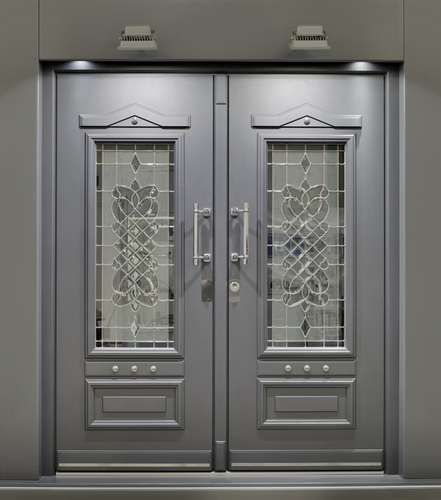
The Ultimate Guide to Choosing Energy-Efficient Windows for Your Home
Introduction
When it comes to making your home more energy-efficient, one of the key areas to focus on is your windows. Energy-efficient windows not only contribute to reducing your carbon footprint but also help you save on your energy bills. In this comprehensive guide, we’ll walk you through everything you need to know about choosing the right energy-efficient windows for your home.
Understanding the Importance of Energy-Efficient Windows
Energy-efficient windows play a crucial role in minimizing heat transfer between your home’s interior and the outside environment. This helps regulate indoor temperatures, reducing the need for excessive heating or cooling and ultimately cutting down energy consumption.
How Energy-Efficient Windows Work
Energy-efficient windows use advanced technologies to prevent heat loss during colder months and minimize heat gain during warmer months. They often feature multiple layers of glass with insulating gases trapped in between, which act as barriers to heat transfer.
Types of Energy-Efficient Window Glass
Double Pane Windows
Double pane windows consist of two layers of glass with a spacer bar in between, creating an insulating gap. This design enhances thermal efficiency and reduces noise transmission.
Triple Pane Windows
Triple pane windows, as the name suggests, include three layers of glass and two insulating gaps. They offer even better insulation and noise reduction compared to double pane windows.
Frame Materials Matter
The choice of frame material impacts both the energy efficiency and aesthetics of your windows. Here are some common options:
Vinyl Frames
Vinyl frames are known for their affordability and low maintenance. They provide good insulation and are resistant to moisture, making them suitable for various climates.
Wood Frames
Wood frames offer excellent insulation but require more upkeep. They add a classic, natural look to homes and can be painted or stained for customization.
Aluminum Frames
Aluminum frames are durable, lightweight, and resistant to corrosion. However, they conduct heat and cold, which can affect their energy efficiency.
Fiberglass Frames
Fiberglass frames are highly durable and low-maintenance. They offer excellent insulation and can mimic the look of wood or other materials.
Low-E Coatings and Their Benefits
Low-E (low emissivity) coatings are thin layers applied to window glass to reflect infrared light and UV rays. They help regulate indoor temperatures and protect furniture from sun damage.
Gas Fills for Enhanced Insulation
Some energy-efficient windows are filled with gases like argon or krypton, which are denser than air. These gases reduce heat transfer and improve insulation.
U-Factor and Solar Heat Gain Coefficient (SHGC) Explained
U-Factor measures the window’s insulation effectiveness, while SHGC indicates how much solar heat it allows into your home. Lower U-Factor and SHGC values signify better energy efficiency.
Energy Star Ratings and What They Mean
Energy Star-rated windows meet strict energy efficiency guidelines set by the Environmental Protection Agency (EPA). Choosing these windows ensures you’re making a sustainable choice for your home.
The Importance of Proper Installation
Even the most energy-efficient windows won’t perform well if they’re not installed correctly. Proper installation ensures a snug fit, minimizing air leakage and maximizing energy savings.
Maximizing Energy Efficiency with Window Treatments
Using energy-efficient window treatments like blinds, shades, and curtains can further enhance your home’s insulation by trapping air between the treatment and the window.
Maintenance and Longevity of Energy-Efficient Windows
Regular cleaning and maintenance are essential to prolong the lifespan of your windows. Proper care ensures they continue to perform at their best in terms of energy efficiency.
Return on Investment (ROI) for Energy-Efficient Windows
While energy-efficient windows may have a higher upfront cost, their long-term energy savings and potential increase in home value contribute to a favorable return on investment.
Finding the Right Window Contractor
Choosing a reputable window contractor is crucial for proper installation. Look for certifications, read reviews, and ask for quotes from multiple contractors to make an informed decision.
Government Incentives and Rebates
Many governments offer incentives and rebates for homeowners who invest in energy-efficient upgrades, including windows. Research available programs in your area to maximize your savings. Elevate Your Home’s Efficiency and Style with our Double Glazed Front Doors – Perfect Complement to Energy-Efficient Windows
Conclusion
Investing in energy-efficient windows is a smart decision that benefits both your home and the environment. By understanding the various factors that contribute to energy efficiency, you can make an informed choice that aligns with your budget and preferences.
FAQs (Frequently Asked Questions)
- Are energy-efficient windows more expensive? Energy-efficient windows can have a higher upfront cost, but their long-term energy savings often outweigh the initial investment.
- Do energy-efficient windows eliminate condensation? While they can reduce condensation, factors like indoor humidity levels and ventilation also play a role.
- Can I install energy-efficient windows myself? Proper installation requires expertise to ensure optimal performance, so it’s recommended to hire a professional.
- Do energy-efficient windows block UV rays? Yes, many energy-efficient windows with Low-E coatings can block a significant amount of UV rays.
- What’s the typical lifespan of energy-efficient windows? With proper maintenance, energy-efficient windows can last for several decades.



